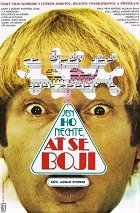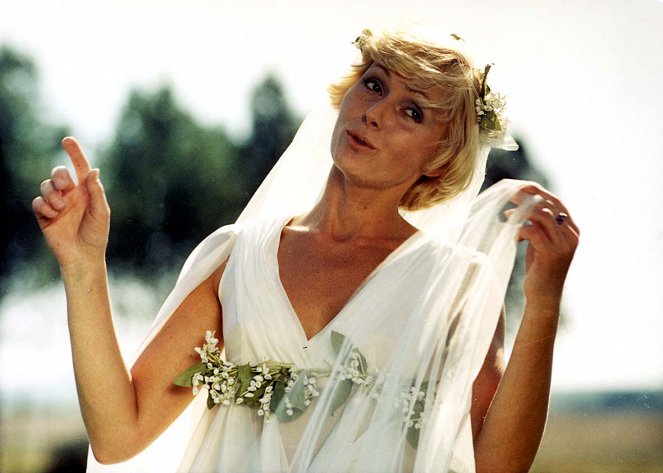Regie:
Ladislav RychmanKamera:
Josef HanušBesetzung:
Luděk Sobota, Helena Vondráčková, Petr Nárožný, Miloslav Šimek, Vladimír Menšík, Jaroslava Brousková, Zdeněk Dítě, Jiří Krampol, Dana Hlaváčová (mehr)Kritiken (3)
Ich liebe die Semafor-Ära von Miloslav Šimek, Luděk Sobota und Petr Nárožný… Ich liebe sie wirklich. Diesen Film werde ich aber nicht lieben. Man sieht nämlich deutlich, dass Šimek und Sobota an dem Drehbuch nicht besonders viel gearbeitet haben (die Theaterbeteiligung von Nárožný war eher gering). Es fehlt auch die charakteristische Frechheit. Über das Ergebnis kann man sich nicht freuen. Gelegentlich gibt es auch Humor. Er ist aber nicht besonders gut. Das Beste kommt erst am Ende – das brennende Haus, Helena Vondráčková verschwindet aus dem Bild, Sobota perfektioniert ruhig die Melodie fürs Finale und Šimek und Nárožný laufen durch die Flammen mit einem abgerissenen Dachrinnenrohr. Das sind Momente, die sowohl für das Theater als auch für sie charakteristisch sind. Wenn ich noch etwas anderes hervorheben sollte, dann wären es wahrscheinlich nur der verspielte Text des zweiten Liedes, den bestimmt Jan Vodňanský geschrieben hat, und der Dialog vom Direktor Soukup und seiner Frau, die den Komponisten Brabec beobachten: Was macht er überhaupt? – Er sitzt und gafft. – Vielleicht denkt er nach. – Dem entspricht sein Gesichtsausdruck nicht.
()
The forced optimism from the period of normalisation imbued with a variation on Hollywood backstage musicals works well – with the exception of the idiotic acting performance of Luděk Sobota (who is to blame for the failure of the romantic subplot) – and is unexpectedly tolerable. This is thanks particularly to the screenplay, which doesn’t endlessly use variations on a single idea (and thus the film isn’t a series of sloppily strung-together music videos) and the skilful directing of Ladislav Rychman, who had a feel for rhythm (if there is such a thing). Even the “action” scenes (the house on fire) are well arranged and believable while having an appropriately brisk pace, which was not common in Czech comedies of the period. Interpreting this film is a matter of skating on thin ice, but we can understand its premise as a metaphor for the conditions in which artists were forced to create under totalitarianism, i.e. in fear. But the characters who represent a threat to the altruistic image of the communist regime are two capitalist-minded entrepreneurs for whom the finished work has greater value than human health and wellbeing. 55%
()
A brisk revue built on nonsense, comparable to Smoljak/Svěrák films. Today it is mainly a memory of the joint energy of the comedians Šimek, Sobota, Nárožný, and Krampol. There have been many television programs and theater or audio recordings of this, but only one major film.
()


Werbung